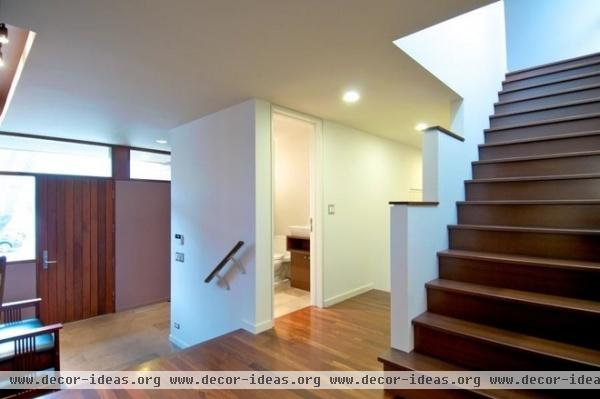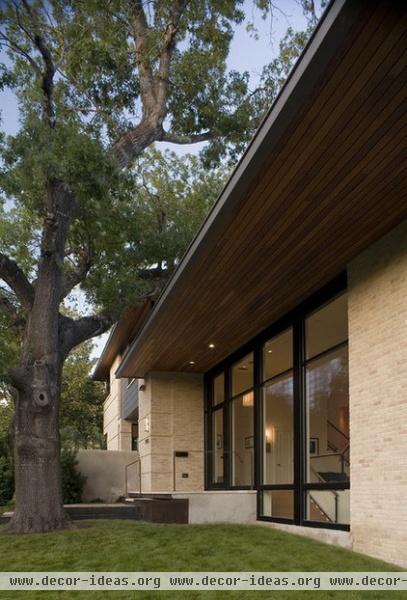What to Consider Before Starting Construction
http://decor-ideas.org 02/14/2014 03:24 Decor Ideas
So you and your designer have settled on a plan for your remodel or your custom new-build home. You can already envision gathering with family and friends to cook delicious meals in your new chef’s kitchen. Or even feel the warmth of your new steam shower. But before all that can come to fruition, you must embark on what many homeowners say is the most stressful, undesirable process of a major home project: construction.
As with most things, the more prepared you are, the better you’ll be able to manage problems when they occur. (And they will occur.) Here are a few things to think about.

Selecting a Contractor
There is no foolproof process for selecting a contractor. Trust is a good starting point for the decision-making process. If you trust the people you’re working with, you’ll likely cut down on hassles and cost overruns. Of course, some people can be too trusting and therefore be taken advantage of, so don’t bet all your chips on trust.
Value for money, experience and referrals are all elements to factor into the sometimes complicated calculations when you’re selecting someone to take your project from design to reality. This is someone with whom you will likely be interacting closely for an extended period of time, so choose someone who fits with how you and your team like to work.
You can read reviews on Houzz to get a sense of a general contractor’s work and personality before arranging to meet in person, which is highly recommended. If it sounds like dating, it is in effect, with one big difference: This person will be responsible for taking a large sum of your money and converting it into a finished product that you will hopefully enjoy for years to come.
5 Steps to Help You Hire the Right Contractor

Get the names of the contractor’s last three to five clients and ask all of them these questions.
Did the contractor seem knowledgeable and resourceful?Was he on budget?Was he on time?If there were delays or cost overruns, was it the contractor who caused them? If so, how did he deal with them?Did the client feel the contractor worked collaboratively to come up with mutually satisfactory resolutions to problems, or was the tone combative? Were the clients happy with the workmanship and the contractor’s subcontractors’ work?Did he keep a clean site? How was he with follow-up after completion? Did he come back in a timely fashion to deal with inevitable drywall cracking and nail pops?
You want to confirm that no red flags pop up as you go through this part of the process. Generally you are looking for contractors who deliver a consistent level of client-first service. Those contractors that do are almost never the cheapest to hire, but sometimes the extra 2 to 10 percent in cost can be worth it.

A Bid Is Not the Whole Picture
Although on paper competitive bidding seems to be a foolproof way to get what you want at the lowest price, there are challenges with that approach in real life. If contractors were bidding on something they understood 100 percent, and there were no differences on how they delivered the finished product, then competitive bidding could be a good solution.
But just as the same meal turns out different when prepared by three different chefs, the same set of drawings is interpreted differently by different contractors. We have had clients insist on choosing the lowest bid on a job without considering other critical factors, such as experience, reputation and trustworthiness.
On a recent custom house, we actually had to fire the contractor from a jobsite when it became apparent the contractor was not building what was actually in the drawings. We had to find and bring in another crew to finish. This is not what you want as a client when you are trying to finish your house. Worst of all, that client now has to pay the second contractor extra to fix up all the mistakes caused by the first one, to the tune of more than $30,000. Not to mention, there’s the time and hassle of having to find and fix all the problems. All of this basically wiped out any savings over a more expensive contractor.
Choosing a contractor should never be based on bid prices alone, but a whole host of other factors that your design team will help you with to pick the best contractor for your specific job.
Learn the Lingo of Construction Project Costs

Fixed Bids or Time and Materials?
A fixed price implies that the contractor will charge you X dollars at the end of the job — end of story. But most contracts have provisions stipulating that latent conditions (for example, things that are unseen, such as termites in existing walls or large underground impediments to excavation) will add to the price.
Another potential issue with a fixed-price contract is that it tends to put homeowners across the table from their team member (the contractor), as quality decisions are often dictated not by the scope of the project but by the budget. This means that compromises are made in how certain elements are delivered, due to cost implications (such as removing wall finishes like tile) or deleting elements altogether. I just had a meeting with a landscape contractor, who said it best: “By the time we get to the jobsite, most of the money has been spent, and we have to make do with what’s left over.”

A time and materials (or cost-plus) contract is sometimes more favorable to a homeowner, as it can be viewed as more transparent. Simply put, your contractor buys materials and charges you an hourly rate to install them. But in the hands of an unethical contractor, you might find yourself on the wrong end of a hefty bill, as latent conditions also tend not to be covered.
In reality, most contractors will break up their bid into a part that is fixed (for the parts they have a good handle on) and a part that is not fixed. This makes your contingency even more critical. (As we mentioned previously, you should set your budget and then subtract 20 percent to arrive at your real construction budget.) The contingency is not for “splurges,” but accommodates the usual price variations on a construction project.
What to Look for in a Contractor’s Contract

Bids: What’s in Them and How to Compare
Your team should help you confirm that what is in the drawings correlates to the bid, so the contractor doesn’t miss anything. It is sometimes hard to do this without experience, because one thing on the drawing may imply several steps in construction or a different way to do things than the contractor might be used to.
As part of the bidding process, what we like to do is go over areas that contractors should spend a bit more time on right off the bat in a meeting, so they cover all the items that are required. Remember, we all want the contractor to give an accurate bid, so he doesn’t get frustrated during construction by having to go back and redo elements of the building. As much as we advocate for our clients, contractors are running a business too and have bills to pay.
And the good ones are in high demand, not just because they do great work, but also because they have a reliable method for assessing the work and the cost to the owners. And having a good contractor that can deliver your project far outweighs the apparent cost savings of a cheap bid up front.
Next: See more contractor’s tips
Related Articles Recommended












